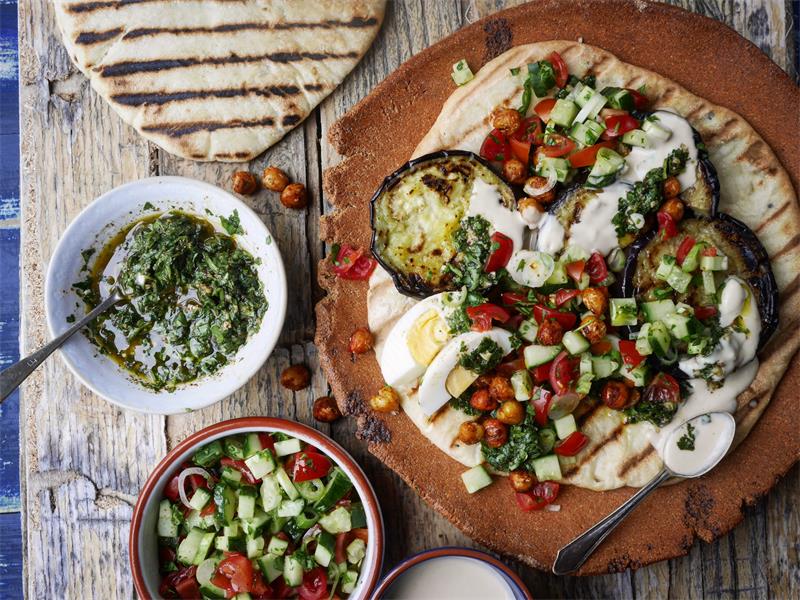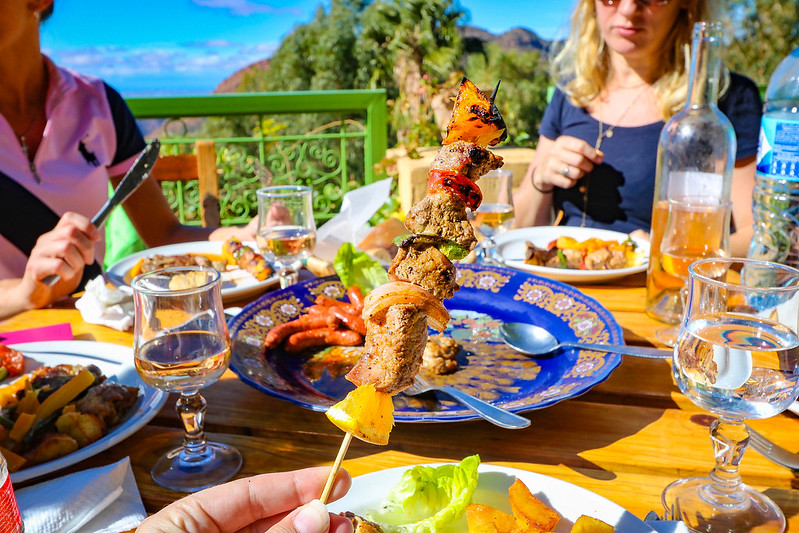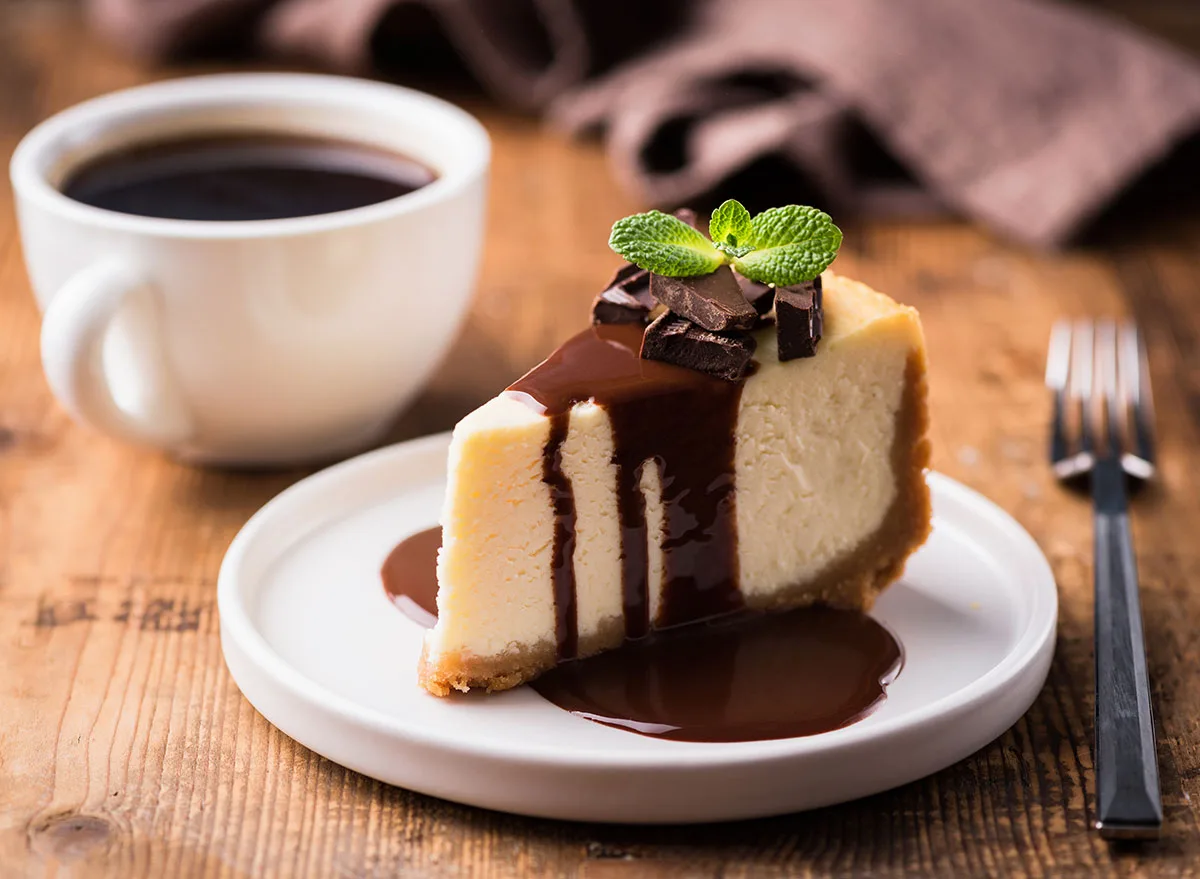Contents
Introduction
The Middle East is known for its rich and flavorful cuisine, and Israel is no exception. While the country is famous for dishes like falafel, hummus, and shakshuka, it also has a lot to offer for vegetarians. In fact, vegetarianism is becoming more popular in Israel with over 5% of the population following a plant-based diet.
While vegetarianism may not be as prevalent in Israeli culture as it is in some other countries, such as India or Thailand, it has been steadily gaining popularity over the past few years. This may be due to a growing awareness of the health benefits of eating a plant-based diet or an increase in concern for animal welfare.
Regardless of why people choose to become vegetarians in Israel, there are plenty of options available to satisfy their culinary cravings. Vegetarianism has also played an important role throughout Israeli history and culture.
Jews have long been associated with vegetarianism due to religious beliefs and practices that promote kindness toward animals and respect for all forms of life. Additionally, many Israelis see vegetarianism as a way to connect with their heritage or show solidarity with their neighbors who follow a plant-based diet for cultural or religious reasons.
Traditional Vegetarian Dishes
Falafel: Origin, ingredients, and preparation
Falafel is a popular Middle Eastern dish that has become a staple in Israeli cuisine. It is made from ground chickpeas or fava beans that are seasoned with herbs and spices, formed into balls or patties, and then deep-fried until crispy on the outside and tender on the inside.
While falafel is typically associated with Israel, its origins are debated among different countries in the region. In Israel, falafel is often served in a pita with hummus, tahini sauce, vegetables such as cucumbers and tomatoes, and pickled vegetables such as cabbage or onions.
Some restaurants also offer variations of falafel sandwiches that include French fries or eggplant. It can also be enjoyed as an appetizer or snack on its own.
To prepare falafel from scratch at home, you will need soaked chickpeas or fava beans (or a combination of both), onion, garlic, parsley or cilantro (or both), cumin powder, coriander powder (optional), salt and pepper to taste. The ingredients are blended together until they form a coarse paste-like consistency before being formed into balls or patties and fried in hot oil until golden brown.
Hummus: History, variations, and serving suggestions
Hummus is another beloved vegetarian dish that originated in the Middle East centuries ago but has gained massive popularity around the world today. It is made from cooked chickpeas blended with tahini paste (ground sesame seeds), olive oil, lemon juice garlic cloves to create a creamy dip-like consistency.
In Israel hummus is almost always served as an appetizer accompanied by warm pita bread for dipping but it can also be used as a condiment to bring flavor to sandwiches/wraps or as a topping for salads, shakshuka, or roasted vegetables. It is also common to find hummus served with various toppings such as whole chickpeas, pine nuts, paprika, olive oil, or even a fried egg.
Some popular variations of hummus in Israel include “ful,” which is made from cooked fava beans instead of chickpeas and is typically served warm with tahini sauce and olive oil. Another variation is “masabacha,” which features whole chickpeas mixed with the blended hummus and topped with garnishes such as onions or parsley.
Shakshuka: Ingredients, cooking process, and regional variations
Shakshuka is an Israeli breakfast dish that has become popular around the world in recent years. This savory dish consists of eggs poached in a tomato-based sauce that includes onions garlic peppers plus spices like cumin and paprika. There are many regional variations of shakshuka found throughout Israel and the Middle East.
For example, some versions include spinach or Swiss chard while others incorporate feta cheese or lamb sausage. Shakshuka can be enjoyed at any time of day whether it’s breakfast lunch dinner or even brunch.
To make traditional shakshuka at home try using canned tomatoes (diced), onions garlic red bell pepper cumin paprika salt black pepper eggs fresh herbs like parsley/cilantro/fresh basil leaves sliced jalapenos (optional) and olive oil for frying. The ingredients are sautéed together before adding the canned tomatoes which are then simmered until slightly thickened before cracking eggs on top of the mixture to poach until set
Modern Vegetarian Cuisine
Sabich: The Ultimate Israeli Street Food
Sabich is a popular Israeli street food that has its origins in Iraq. It typically consists of pita bread stuffed with fried eggplant, hard-boiled eggs, hummus, tahini sauce, Israeli salad (diced tomatoes and cucumbers), and amba (pickled mango sauce). Some variations also include boiled potatoes, parsley, onion, or pickles.
Sabich is a perfect dish for vegetarians as it is filling, flavorful and easy to find in almost any Israeli city. The dish has its roots in Iraqi Jewish cuisine but has become an iconic part of the modern Israeli food scene.
Sabich can be found in food stalls across the country and is a staple for those looking for a quick bite on the go. Often served with hot sauce or schug (a spicy condiment), this sandwich packs a punch of flavor that will keep you coming back for more.
Malabi: A Sweet Middle Eastern Dessert
Malabi is a classic dessert often found at Jewish celebrations or during Ramadan across the Middle East. It consists of milk pudding flavored with rose water and topped with syrup made from pomegranate molasses or other fruit flavors such as raspberry or peach. Malabi’s texture varies depending on the chef’s preparation; it can range from being completely smooth to having small chunks of cream inside.
The origin of malabi is not clear; some sources say that it comes from Turkey while others argue it came from Iran or Iraq. Regardless of its origin, malabi has become an essential dessert in Israel’s culinary scene and can be found at various restaurants and cafes around the country.
Vegan Shawarma: A Healthier Alternative to Classic Shawarma
Shawarma is a traditional Levantine meat dish made by grilling meat on a rotating spit and then shaving it off and serving it in a pita or laffa bread. As shawarma grew in popularity, more vegetarian and vegan versions appeared on the Israeli food scene. Vegan shawarma is typically made from seitan, tofu, or mushrooms that are marinated in traditional shawarma seasoning before being grilled.
Vegan shawarma offers a healthier alternative to traditional meat-based shawarma without sacrificing flavor. It is often served with hummus, tahini sauce, salad, and pickles just like the original dish.
Some restaurants even offer vegan shawarma bowls with added grains or roasted vegetables for extra nutrition. Vegan shawarma has become increasingly popular among health-conscious individuals and those interested in reducing their meat consumption without sacrificing taste.
Regional Specialties
Jerusalem Mixed Grill (Meurav Yerushalmi): A Meatless Feast for the Senses
When most people think of grilled meat, they don’t usually imagine a vegetarian dish. However, the Jerusalem Mixed Grill, also known as Meurav Yerushalmi, is a meatless feast that’s famous throughout Israel.
This dish is made from a variety of vegetables and spices that are grilled to perfection. The main components of Meurav Yerushalmi are onions, mushrooms, and sweetbreads (also known as thymus glands).
The onions and mushrooms are sliced thinly and cooked on a griddle until crispy and caramelized. The sweetbreads are marinated in a mixture of cumin, paprika, garlic, lemon juice, and olive oil before being added to the grill.
The result is a fragrant mix of flavors that’s both hearty and satisfying. If you’re looking for an authentic taste of Jerusalem cuisine that doesn’t involve meat, then Meurav Yerushalmi is definitely worth trying.
Bedouin Cuisine: A Vegetarian-Friendly Journey Through the Desert
Bedouin culture has been an integral part of Israel for centuries. Their nomadic lifestyle has resulted in a cuisine that’s simple yet flavorful. While meat is traditionally part of their diet, there are several vegetarian-friendly dishes that you can enjoy on your next trip to the desert.
One such dish is called Zarb, which involves cooking vegetables in an underground oven with hot coals or heated stones. Another popular Bedouin dish is Hubeza (mallow), cooked with garlic cloves in olive oil or fried with onions to make Hubeza salad.
In addition to these dishes you can also try shakshuka with grilled eggplant (known as Bayrouti style) as well as a variety of breads made with wheat, barley, or chickpea flour. Bedouin hospitality is legendary, and you’ll be sure to leave with a full stomach and fond memories.
Druze Cuisine: A Vegetarian Haven in the Galilee Mountains
The Druze people are an ethnoreligious group that’s spread across several countries in the Middle East. They have a rich culinary tradition that features several vegetarian-friendly dishes.
One of the most popular Druze dishes is called Musakhan, which consists of roasted onions and sumac-spiced chicken on top of taboon bread. However, if you’re looking for a vegetarian version of this dish, it can be easily made by replacing the chicken with mushrooms or tofu.
Another popular Druze dish is called Akkubiyyeh, which involves cooking lentils with onions and cumin until they’re soft and creamy. The mixture is then served over rice or bulgur wheat.
Druze cuisine also features a variety of fresh herbs such as mint, oregano, and thyme that add complex flavors to their dishes. If you want to experience authentic Druze cuisine in Israel’s beautiful Galilee Mountains region, be sure to try these flavorful vegetarian dishes.
Lesser-Known Vegetarian Delights
Krembo: A Popular Israeli Snack That Is Accidentally Vegan
Krembo is a beloved sweet treat in Israel, especially during the winter months. It consists of a marshmallow-like cream on top of a cookie base, all covered in a thin layer of chocolate. While the traditional version uses milk-based cream, many Israeli brands now offer vegan alternatives made with soy or coconut cream.
This accidentally vegan snack is perfect for those with dairy allergies or lactose intolerance. In addition to being delicious, Krembo also comes in fun and colorful packaging that makes it an ideal souvenir to bring back home from your trip to Israel.
Bourekas: Variations of This Pastry That Are Suitable for Vegetarians
Bourekas are savory pastries that can be found in bakeries and markets throughout Israel. They come in various shapes and sizes and are typically filled with cheese, spinach, mushrooms, or potatoes. While some bourekas use non-vegetarian ingredients like ground beef or chicken, there are plenty of vegetarian options available.
One popular type of bourekas is the Bulgarian cheese variety, which is made with salty white cheese and flaky dough. Another option is the potato-filled bourekas that often includes onions and seasoning for added flavor.
Jachnun with Skhug: A Yemenite Breakfast Dish with a Spicy Twist
Jachnun is a slow-cooked Yemenite pastry that is traditionally served for breakfast on Saturdays (Shabbat) in Israel. It’s made by rolling dough into thin layers and then baking it overnight until it’s soft and flaky.
Jachnun is typically served hot with fresh tomato sauce or skhug – a popular Middle Eastern chili sauce made from peppers, garlic, and spices. While the tomato sauce is a classic accompaniment to jachnun, many Israelis prefer to eat it with skhug for an extra kick of heat.
This spicy twist on a traditional dish is perfect for those who like to start their day with a bit of excitement. If you’re visiting Israel, be sure to try jachnun with skhug at one of the many Yemenite restaurants found throughout the country.
Conclusion: Vegetarian Delights in Israel
Israel is known for its rich culinary scene and vibrant mix of cultures, religions, and traditions. Vegetarianism has become increasingly popular in Israel over the years, giving rise to a wide range of delicious vegetarian dishes that are sure to tantalize your taste buds. In this article, we looked at some of the best vegetarian dishes to try in Israel – from traditional favorites like falafel and hummus to modern delights like sabich and vegan shawarma.
One thing that stands out about vegetarian cuisine in Israel is its emphasis on fresh ingredients, bold flavors, and diverse cultural influences. Whether you’re a seasoned vegetarian or simply looking for a healthier alternative to meat-based dishes, there’s no shortage of amazing options to choose from.
Some of our top picks include falafel – crispy balls made from chickpeas and spices that are served with tahini sauce and pita bread; hummus – a classic dip made from mashed chickpeas, garlic, lemon juice, olive oil, and sesame paste; and shakshuka – a hearty breakfast dish made with eggs poached in tomato sauce with onions and peppers. If you’re looking for something more modern or experimental, don’t miss out on sabich – an Israeli street food favorite made with fried eggplant slices, hard-boiled eggs, tahini sauce, pickles, tomatoes, cucumber salad wrapped in pita bread; malabi – a sweet dessert pudding made with milk or coconut milk topped with rosewater syrup or fruit coulis; or vegan shawarma – thinly sliced jackfruit marinated in Middle Eastern spices served as a filling for pitas or wraps.
In addition to these well-known dishes are many lesser-known but equally delicious vegetarian delights such as krembo – chocolate-covered marshmallow treats that happen to be accidentally vegan; bourekas – pastries filled with cheese, spinach or potato, and jachnun with skhug – a Yemenite breakfast dish consisting of rolled dough baked slowly overnight that is then served with hot sauce. Israel’s vegetarian cuisine is an exciting and diverse world of flavors that reflects the country’s cultural diversity and rich culinary heritage.
Whether you’re exploring street markets or fine dining establishments, there are countless opportunities to discover new tastes and experiences. So next time you’re in Israel, be sure to try some of these amazing vegetarian dishes – your taste buds will thank you!













